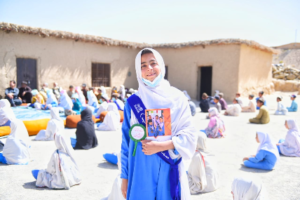Poliovirus Balochistan: The need for indigenous strategy
Editorial :
All the anti-polio campaigns are donor-funded in Balochistan like in other parts of the country. For program efficiency and to meet donor’s requirements, strategies are evolved on the federal level.
Although, the centralized approach/strategy has failed to eradicate the crippling virus for more than three decades. Decentralization of powers and evolving strategy has always been the demand of health workers and volunteers battling the crippling virus at the cost of their lives in Balochistan.
Money designated for a particular activity can be used for no other. Therefore, program managers have little authority or budgetary control in vertical programs such as polio eradication and are unable to solve the problems encountered in the community.
Chronic refusals main reason behind existence of the virus
Chronic refusals, poor mechanisms, and lack of indigenous strategy are the underlying reasons behind the existence of the crippling virus. Despite the formation of committees and repeated attempts, the number of chronic refusals in Quetta, Killa Abdullah, and Pishin is still in the thousands.
The three districts are considered to be the most sensitive when it comes to poliovirus. Refusals on the part of many parents in these districts are nothing new. Killa Abdullah district has already reported the first polio case of the current year. The parents of the kid had refused to provide anti-polio drops.
Killa Abdullah reported 73 cases in 2012
In 2012, the same Killa Abdullah district had suffered the worst because of the virus and reported 73 cases. Officials in the health department still paint a bleak picture regarding the increasing number of chronic refusals.
Elected representatives, tribal elders, and local administration should put their heads together for evolving a joint indigenous strategy. A strategy at the village, union council, tehsil, and district level would be more effective than implementing an Islamabad-based strategy.
Routine Immunization
Apart from this, routine immunization is also crucial in the eradication of poliovirus. Balochistan has made a positive stride while improving routine immunization from 16 percent coverage to almost 40 percent coverage.






